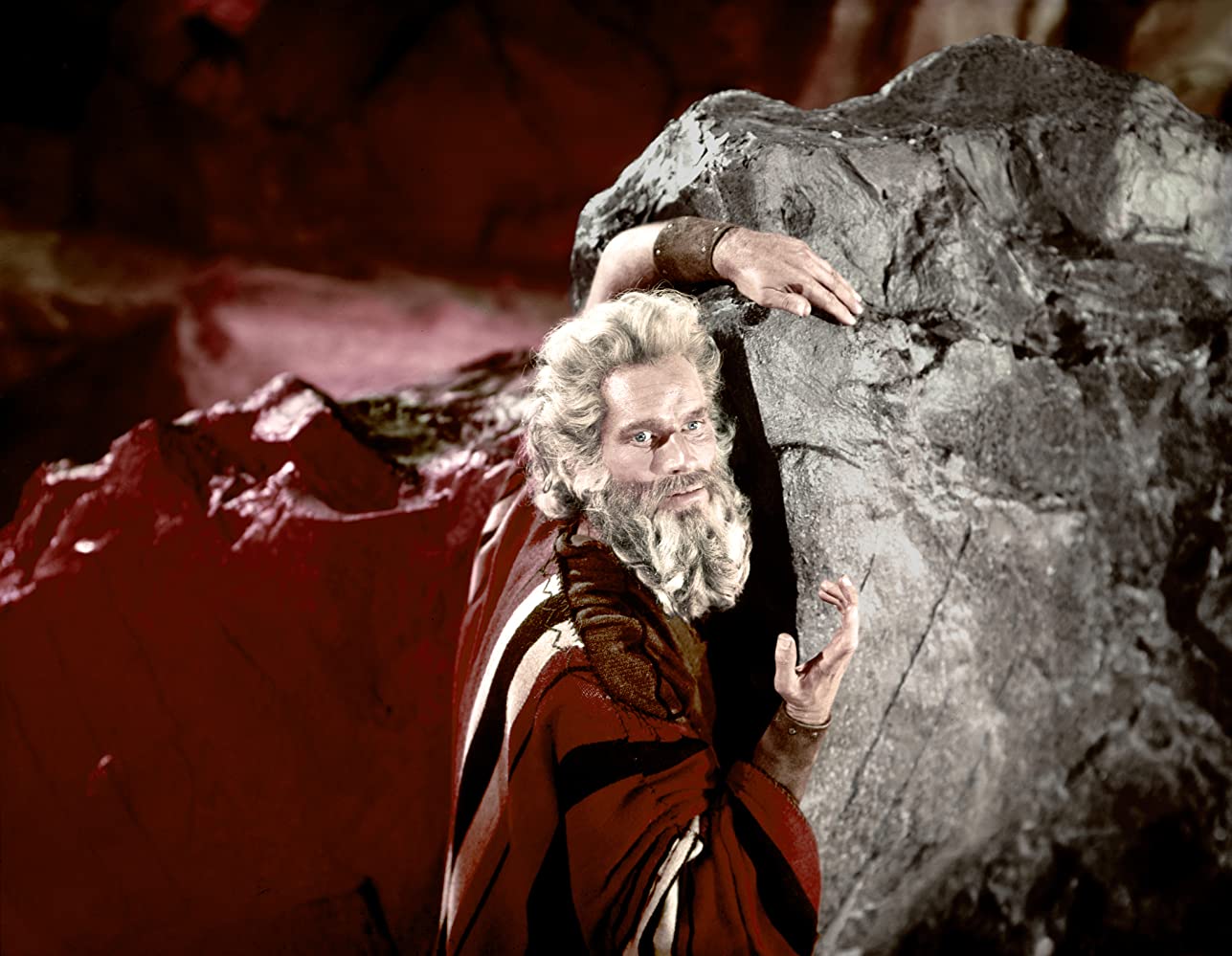
While Cecil B. Demille’s The Ten Commandments (1956) is hailed as an epic, the lengthy film does not come without its own flaws.
Starting tonight through sundown on Saturday evening, Jews living in the diaspora will be celebrating Shavuot. The holiday celebrates the giving of the Torah at Mount Sinai. Inside Israel, the holiday will end on Friday. In any event, shuls are closed and thus, The Ten Commandments may also feel like appropriate viewing heading into the holiday. In theory, it could be appropriate viewing but that depends on who one talks with. If you ask me, the film is flawed and I only grew to recognize the flaws as I became more religious. It’s so much that despite the the work that went into it, I have a very hard time recommending the film these days.
The more you read, you more you realize how horrendous the Biblical adaptations are, including the more recent Exodus: Gods and Kings a few years ago. Don’t get me started on that one–please! There’s also Noah, another film that has issues in its own right.
One of the problems that has also bothered me for many years is the moon when the tenth plague hits. Given the history behind the Exodus and Passover, the moon should be a full moon. Instead, it isn’t as the film depicts a crescent moon. This isn’t the only problem and if I’m being honest, it’s one of the reasons why I stopped watching the annual ABC broadcast.
If you study the Torah and other similar books, you probably already knew that Moses (Charlton Heston) always had a relationship with his biological family. The film doesn’t really recognize this. Another thing and this is really where the film horribly messes up: Moses also had a speech impediment. Where is the speech impediment in the film? It’s as if this film doesn’t want to recognize it whatsoever! Aaron (John Carradine) was always talking for Moses because of the impediment especially when they addressed Rameses II (Yul Brynner). Again, this is a major flaw in the eyes of the Torah.
Nefretari (Anne Baxter) was an Egyptian queen but the Torah also never mentions her. The film seemingly implies that she was his girlfriend at one point. The Torah also never specifically mentions Pharaoh’s name. All we know is that there was a Pharaoh that came around who didn’t know Joseph.
When it came to the splitting of the sea (more likely the Sea of Reeds rather than the red sea, the Midrash and the Talmud perfectly clear about how it happened. This film gets it wrong because Nachshon ben Aminadav is missing.
When everyone else hesitated, he jumped into the swirling sea.
The visual effects are amazing, don’t get me wrong. However, the movie got it wrong and so people that don’t read the Midrash are also getting it wrong. It just so happens that Nachshon is also Aaron’s brother-in-law. The Torah doesn’t mention names unless there is a specific reason.
Also missing from the film is the awesome splendor that surrounded the giving of the Torah. DeMille fails to replicate the thunder, lightning, smoke, and tremors. It’s unfortunate and yet another reason why I still await a film that can really tell the story.
When Moses descends from receiving the Ten Commandments for the first time at Sinai, there are no rays of light. Here was a man whose face had become radiant–well, especially after the second time–and yet, the film doesn’t capture this.
In the film, Dathan rebels at Mount Sinai with the building of the Golden Calf. In the Torah, Dathan assists Korah in his later rebellion. Dathan, along with his brother Abiram, die during Korah’s rebellion–not during the Sin of the Golden Calf.
The Ten Commandments may have been impressive for its time but the film horribly fails in its attempt to recreate the story of the Exodus.
DIRECTOR: Cecil B. DeMille
SCREENWRITERS: Aeneas MacKenzie, Jesse L. Lasky Jr., Jack Gariss, Fredric M. Frank
CAST: Charlton Heston, Yul Brynner, Anne Baxter, Edward G. Robinson, Yvonne De Carlo, Debra Paget, John Derek, Sir Cedric Hardwicke, Nina Foch, Martha Scott, Judith Anderson, Vincent Price, John Carradine




